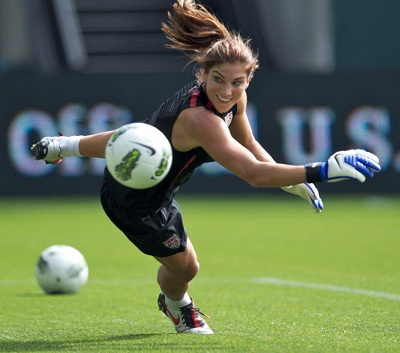Monday’s are devoted to helping the female begin or continue to train. The concepts in this post are also relevant to males.
Usually the hard part is getting a female into “training” instead of just “working out” (here’s some help for the transition: 1, 2, 3, 4, 5, 6). However, we know that optimal success isn’t solely dependent on the training in the gym, but attention to detail outside of it. When a female experiences lingering soreness or even stalled progress, it’s probably more than just the program; her nutrition is likely to blame.
Nutrition can be looked at in two fundamental ways: total calories and macro nutrients. Solely looking at calories is relevant, but it doesn’t paint the whole picture. Macro nutrients — which include proteins, fats, and carbohydrates — can be more descriptive in describing food’s effect on the body’s hormones. In the case of a sore or stalled female trainee, we’re going to focus on protein intake and meal strategy while also addressing some minor food quality issues.
Protein Requirements
I’ve done various posts on protein in the past. This post cited some of Dr. Di Pasquale’s work in saying that power athletes should get 1.2 to 1.6g of protein per pound of body weight. That’s an impressive amount, yet not exactly relevant to the average training female. Instead, a good guideline is aiming for 1g of protein per pound of body weight. If a female weighs 130 pounds, she should aim for 130g of protein. Simple.
I’ll take this time to remind under-eating females why protein is so helpful and healthy (an excerpt from this post):
Protein won’t make a
girlfemale bulky, especially since she not only hasn’t had a history of accidentally becoming bulky but more importantly females only have 5 to 10% of the testosterone that a male has. Instead, protein is the most abundant molecule in the body that is a major structural component of all cells — muscle, organs, hair, and skin — and helps regulate metabolism, form blood cells, and supports the immune system. The average woman is deficient in protein intake, and she will significantly improve her health by consuming more if it…even without exercise.
CONTINUE READING Continue reading

